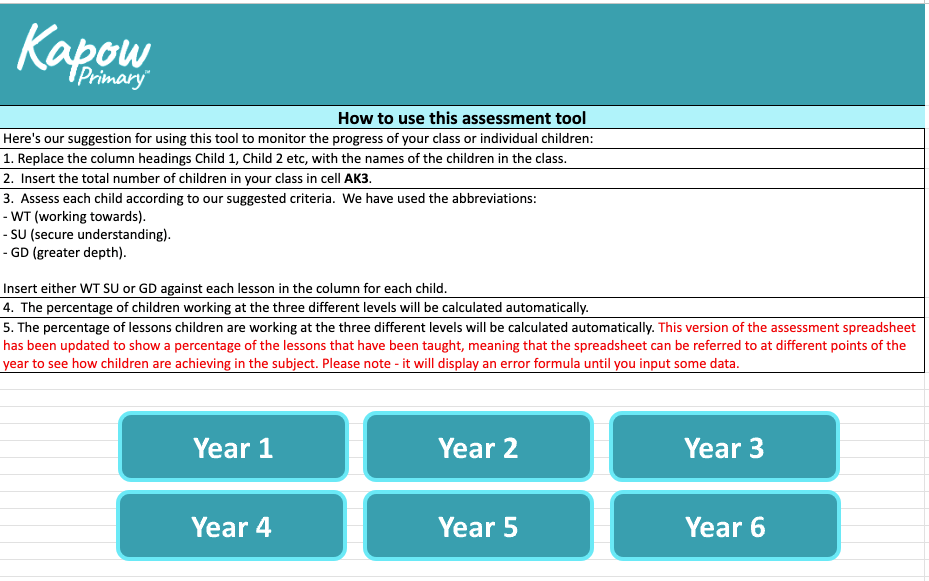
This assessment spreadsheet accompanies our Science scheme of work to support you in creating a record of pupil’s progress.
It provides a list of learning objectives for our Science curriculum and the Assessing progress and understanding statements from each lesson in Key stage 1 and Key stage 2.
This assessment tool is a place to record teacher assessments and track how pupils are achieving across Science units. This formative assessment strategy can help you to identify gaps in pupils’ learning and can act as a tracker to monitor pupil’s attainment throughout the year.
Teachers can record whether pupils have been working towards the learning objective, shown secure understanding of the learning objective or been working at greater depth.
The spreadsheet will then calculate the percentage of the lessons each pupil has been working at these levels which can be useful for writing reports or reporting to parents at parents evenings.
It also gives you data about the whole class helping you to target particular learning to revise and revisit.
It covers:
Find other related documents with our subject leader resources for Science.
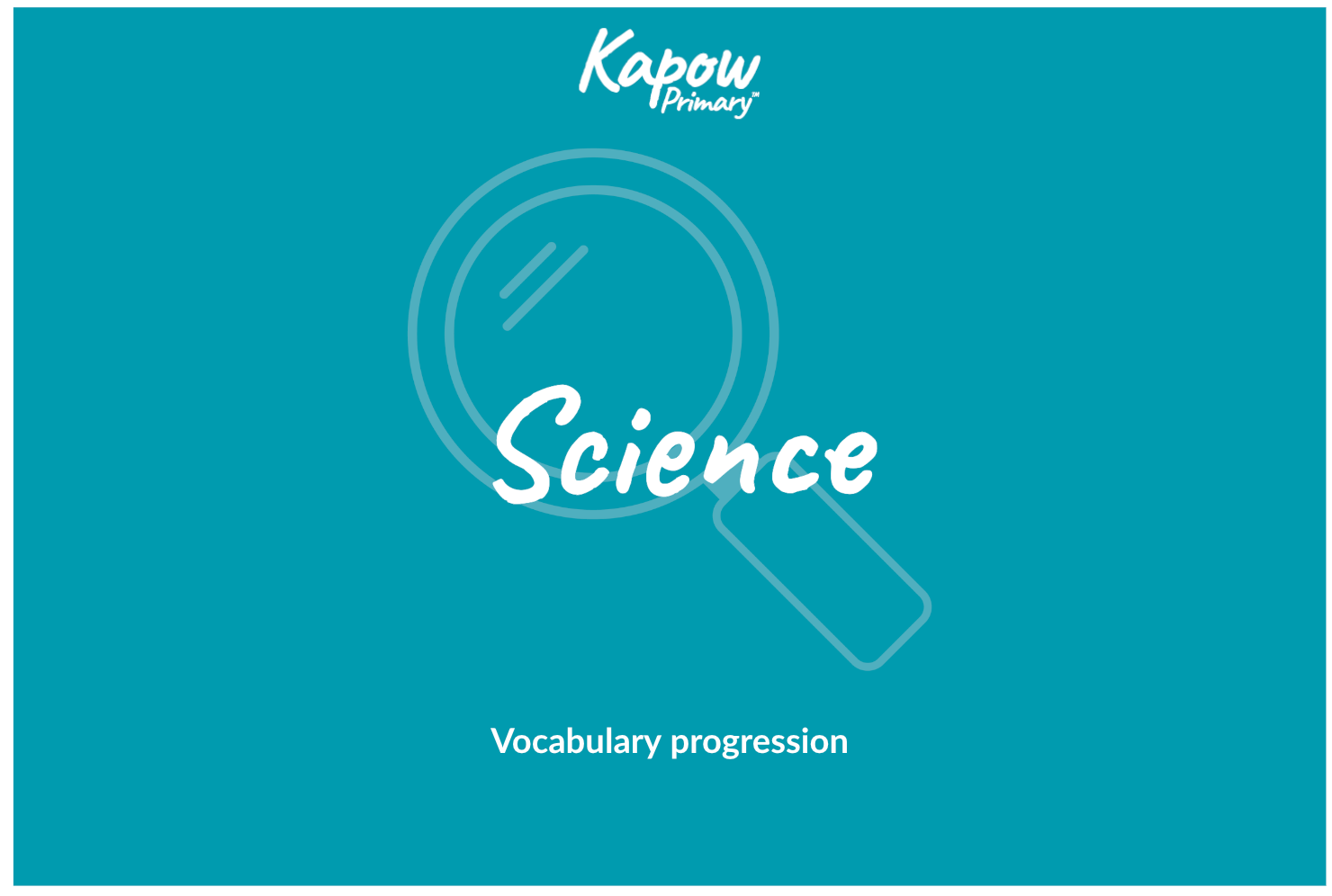
This document, as part of our Science curriculum, outlines the new vocabulary introduced each year, broken down into Scientific knowledge and understanding (by key area), Working scientifically and Science in Action.
This is a new format for a Kapow Primary vocabulary progression document – please email any feedback to [email protected].
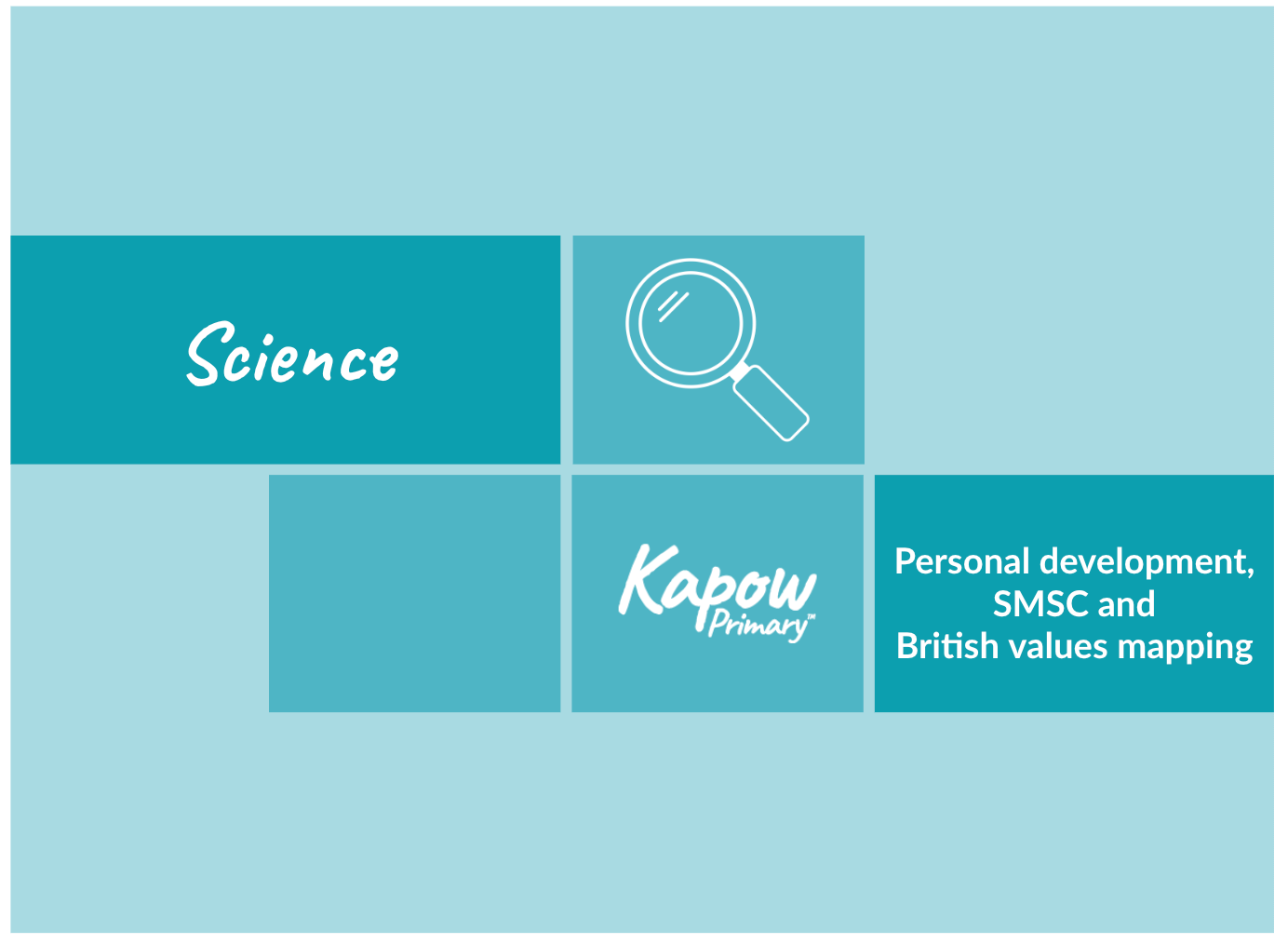
This document shows schools how our Science curriculum can support you in providing for pupils’ personal development, including SMSC and British values.
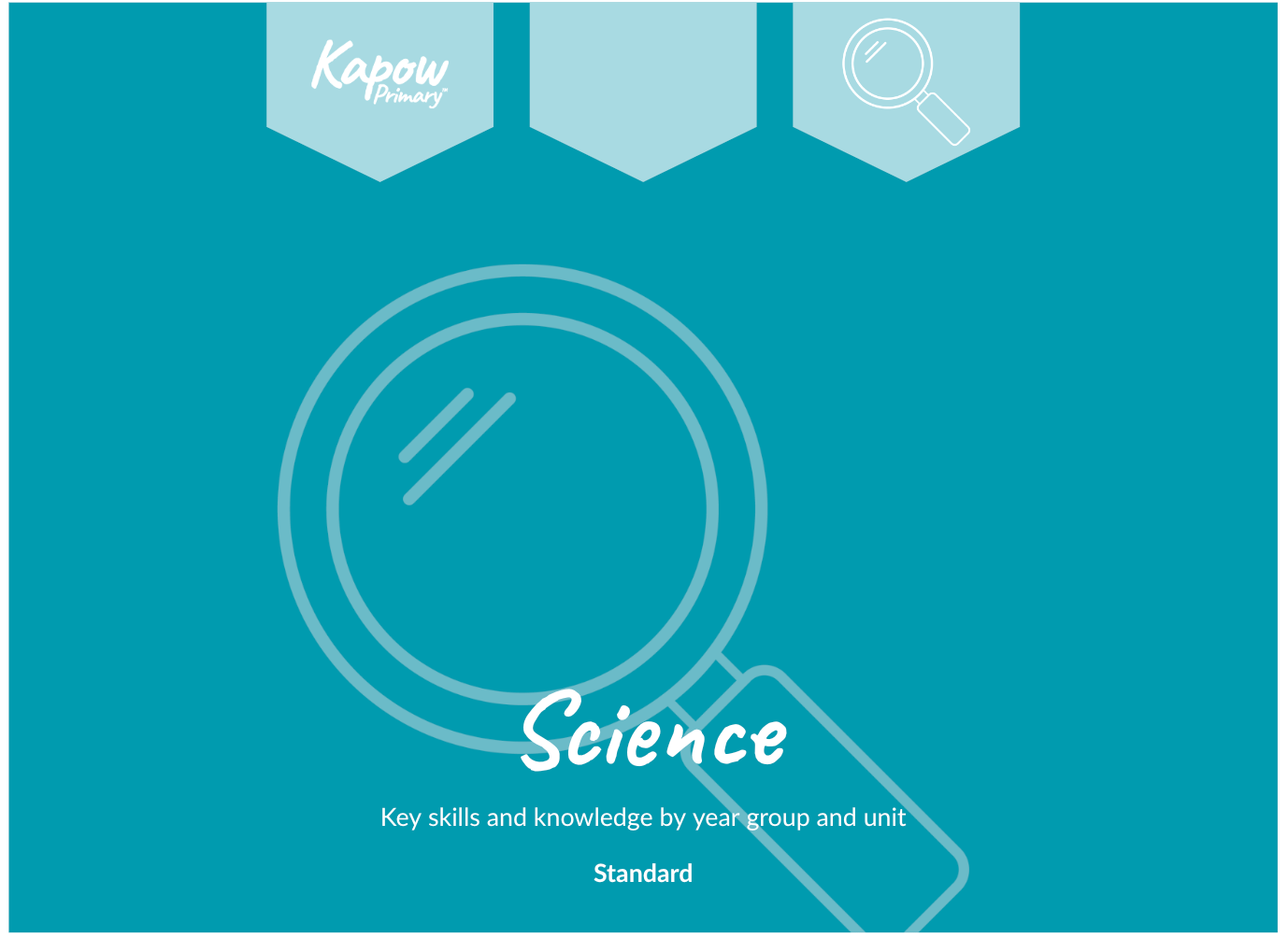
Aimed at the class teacher, this downloadable document shows the key skills and knowledge covered in each unit of the Kapow Primary Science scheme of work.
For each key area, knowledge statements have been organised into three themes; Scientific knowledge and understanding, Working scientifically and Science in action.

A vocabulary progression document that outlines the new conceptual and worldviews specific vocabulary introduced each year in our Religion and worldviews RE curriculum.
It covers:

This downloadable document, aimed at the class teacher, shows the key skills and knowledge covered in each unit of Kapow Primary Religion & worldviews, RE curriculum, covering:
Key stage 1 RE scheme of work
Lower key stage 2 RE scheme of work
Upper key stage 2 RE scheme of work
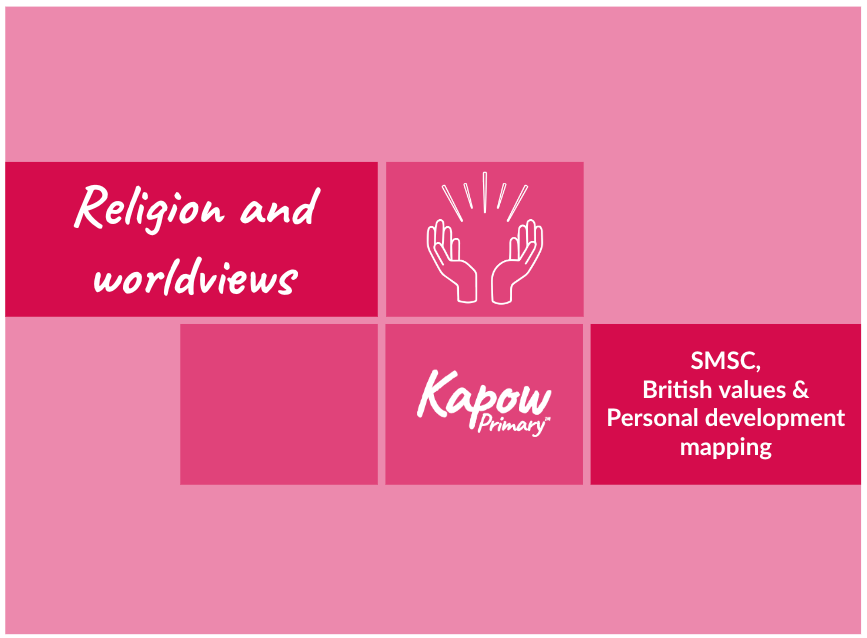
This document outlines, unit by unit, how our Religion and worldviews RE curriculum contributes to pupils’ personal development, including SMSC and British values. It covers:
Key stage 1 RE scheme of work
Lower key stage 2 RE scheme of work
Upper key stage 2 RE scheme of work
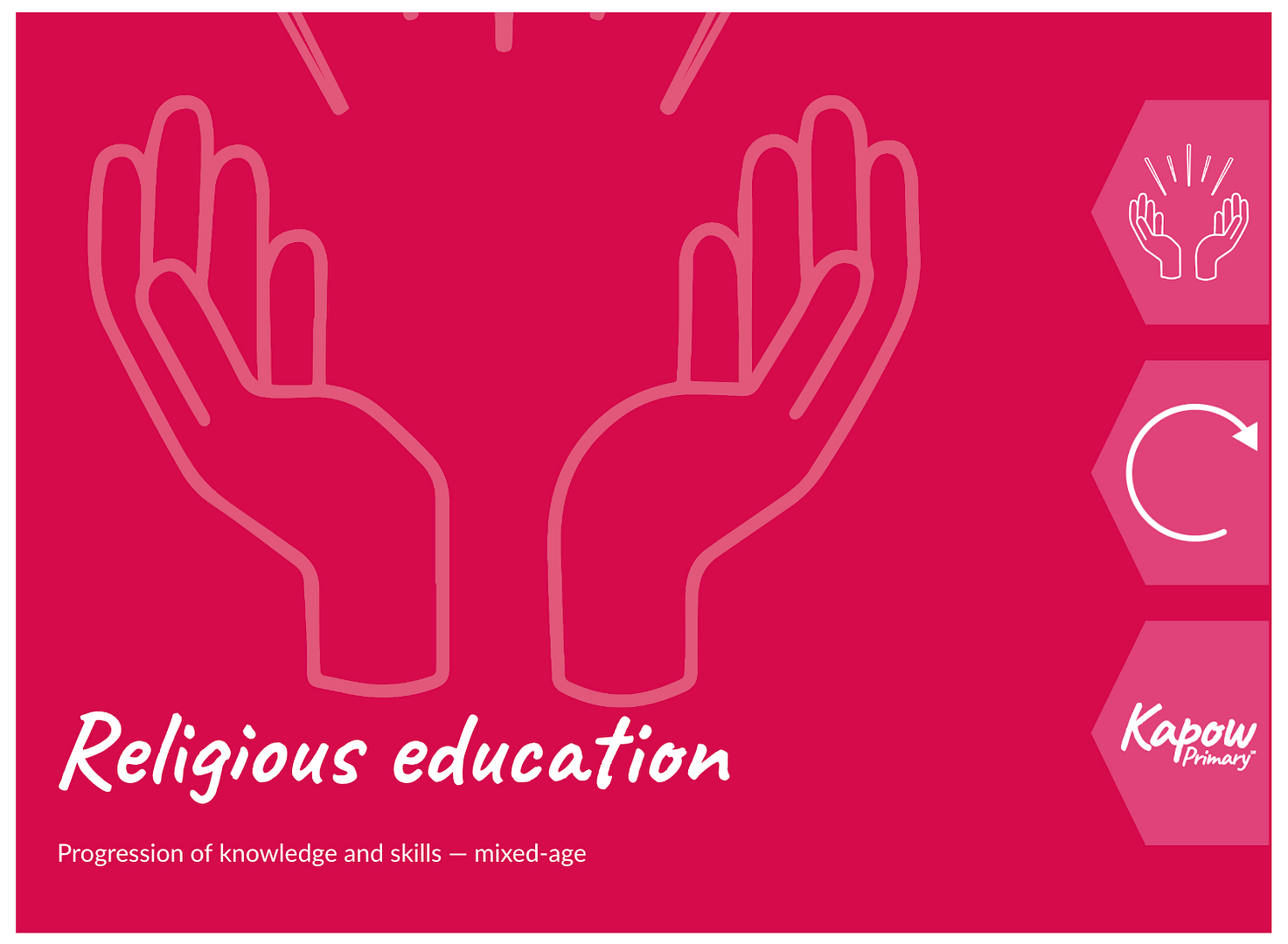
This document shows the progression of knowledge and skills for those schools following our R&W curriculum mixed-age planning for mixed Y1/2, Y3/4 and Y5/6 classes. It shows progression in each of our three strands: Substantive knowledge (concept and worldview-related), Disciplinary knowledge and Personal knowledge, covering:
EYFS information is included.
This document is for use alongside our R&W mixed-age long-term plan and shows the progression of skills and knowledge for those teaching on a two-year rolling cycle.
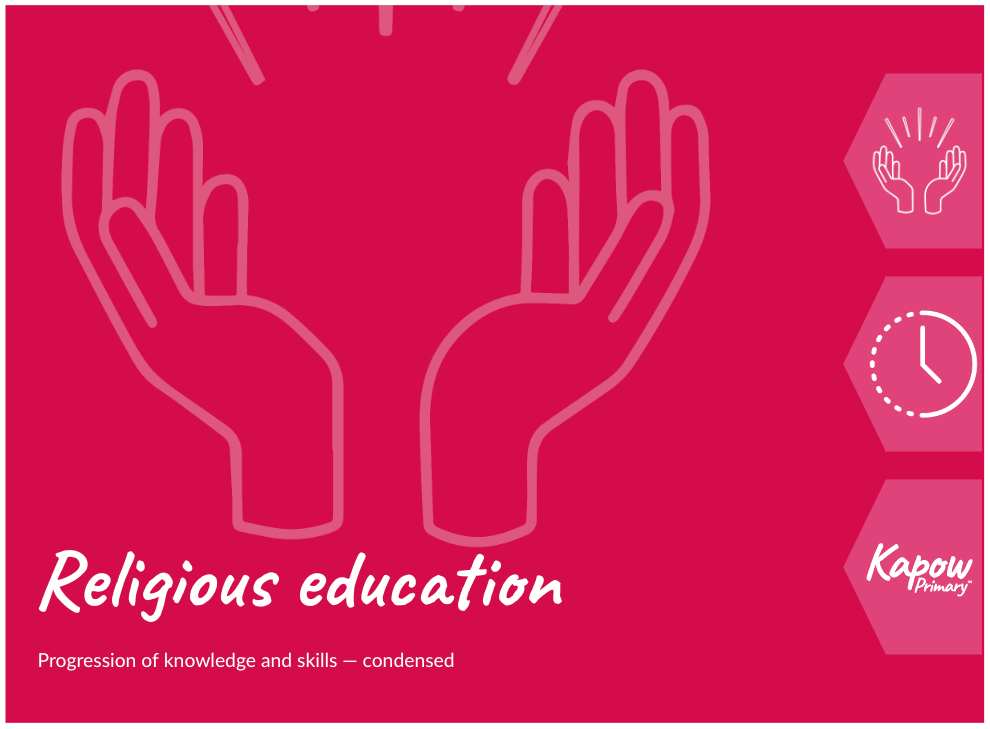
This document sets out the progression of skills and knowledge for those following the condensed version of our Religion and worldviews, RE curriculum. It covers:
Key stage 1 RE scheme of work
Lower key stage 2 RE scheme of work
Upper key stage 2 RE scheme of work









